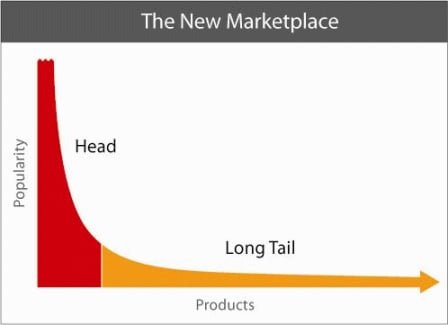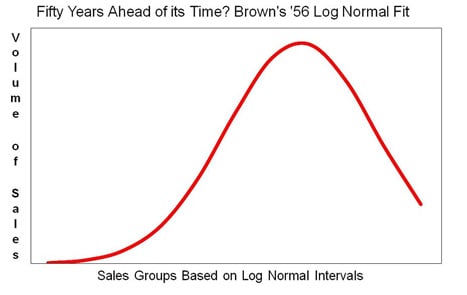 This has been the dreamt-of shape of things to come. Digital music is supposed to break format and form, dissolving binds and allowing for more fluid audio consumption. It rewards quantities of quality over multitudinous shit yoked to a couple workhorse tracks. This is the saviour of the music; with the demise of the head, that strange oligarchy of predestined hitmakers, the utopian tail takes over. It's like playing on the floor in front of the stage. Power transfers from Empire Records' "The Man" to Radiohead, Brian Eno, and the little guys, from big-britched Sub Pop to Brooklyn bedroom operations. Diltettantism finds a charitable end.
This has been the dreamt-of shape of things to come. Digital music is supposed to break format and form, dissolving binds and allowing for more fluid audio consumption. It rewards quantities of quality over multitudinous shit yoked to a couple workhorse tracks. This is the saviour of the music; with the demise of the head, that strange oligarchy of predestined hitmakers, the utopian tail takes over. It's like playing on the floor in front of the stage. Power transfers from Empire Records' "The Man" to Radiohead, Brian Eno, and the little guys, from big-britched Sub Pop to Brooklyn bedroom operations. Diltettantism finds a charitable end. Too bad that's what the tail actually looks like for digital music, maligned into resembling the exact same shape as, guess what, the brick-and-mortar industry dinosaur's sales curve. Turns out they're not that different. And what do you expect? Instead of non-purchases, you have "theft." Sampling, laziness, righteous indignation, general indifference, or maybe even just a different consumption paradigm motivate the savvy music downloader, while the people buying digital music are probably the same inclined to shop at Tower or Best Buy. Effectively, there's no real difference, just a different arena.
Too bad that's what the tail actually looks like for digital music, maligned into resembling the exact same shape as, guess what, the brick-and-mortar industry dinosaur's sales curve. Turns out they're not that different. And what do you expect? Instead of non-purchases, you have "theft." Sampling, laziness, righteous indignation, general indifference, or maybe even just a different consumption paradigm motivate the savvy music downloader, while the people buying digital music are probably the same inclined to shop at Tower or Best Buy. Effectively, there's no real difference, just a different arena.That's not to say that the long tail doesn't have its purposes, or even its truths. I think it just requires a different consideration of what the "industry" is, and how artists can support themselves. Trying to convert the historic model of superstardom and name recognition into a scalable middle class model doesn't work, because the tail doesn't necessarily pertain to economics. What it does pertain to, however, is the idea that the cottage industry can have a much bigger, albeit still relatively small, splash in a much bigger pond. I've said it before, but this is the Era of the Amateur. A return to multidisciplinarianism. The reintegration of music into everyday life as an art, a hobby, an honest-to-God passion.
The fallacy of the digital medium's vestigial tail speaks to the importance of both permanence and physicality that music now possesses. If you want that party jam, just because, you're still not going to pay for it. CD death doesn't necessarily mean that iTunes will be able to sculpt a phoenix out of the ashes. A real patron will still buy the record, with mp3 download now included. So keep on pressin' and rippin'. I'm buying in.




No comments:
Post a Comment